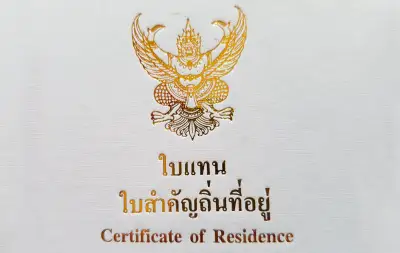A Thai Permanent Residency visa allows foreign nationals to live indefinitely in Thailand without the need for annual visa renewals. It’s not just a legal status but a pathway to deeper integration into Thai society, including easier business operations, financial advantages, and a potential step toward citizenship.
Annual Quota:
The Thai government caps the number of PR visas issued each year to a maximum of 100 per nationality. This quota underscores the competitive nature of the process, highlighting the importance of thorough preparation.
Eligibility Criteria
To apply for Thai Permanent Residency, applicants must meet specific qualifications in one of the following categories:
1. Investment Category
- Minimum Investment: Applicants must have invested at least 10 million THB in Thailand.
- Investment Options: Investments can include Thai government bonds, fixed deposits in Thai banks, or shares in Thai companies.
2. Employment Category
- Work History: Applicants must have held a valid work permit for at least three consecutive years prior to application.
- Income Requirement: Demonstrate a minimum monthly salary based on nationality. For example:
- Japanese: 50,000 THB
- Other nationalities: Varies, typically higher for Western nationals.
- Employer’s Certification: A letter confirming the applicant’s position and duration of employment.
3. Family Category
Applicants must be related to a Thai citizen or permanent resident through:
- Marriage: Spouse of a Thai national or PR holder.
- Parentage: Parent of a Thai child under 20.
- Dependence: Child or parent of a Thai PR holder.
4. Expert/Academic Category
Professionals with exceptional skills, typically in fields like education, science, or technology. The applicant must contribute to the development of Thai society.
5. Humanitarian or Exceptional Contribution Category
Reserved for individuals who have made significant contributions to Thailand, such as through philanthropy, diplomacy, or cultural promotion.
Application Process
Step-by-Step Procedure:
- Pre-Application Requirements:
- Hold a non-immigrant visa (Non-B) for at least three consecutive years.
- Demonstrate financial stability, employment, or investment.
- Document Preparation:
- Personal Documents: Passport, work permit, tax records, and proof of residence.
- Financial Records: Bank statements, investment certificates, or employment income records.
- Family Documents (if applicable): Marriage certificates, birth certificates.
- Police Clearance: Obtain from the applicant’s home country and Thai police.
- Submission:
Applications are filed at the Immigration Bureau in Bangkok. The annual submission period usually falls between October and December. - Interview:
Applicants must attend an interview in Thai, covering personal, financial, and professional details. Language proficiency demonstrates integration into Thai society. - Approval Process:
The approval process takes 6–12 months, involving extensive background checks by multiple government agencies.
Application Fee:
- Non-refundable Fee: 7,600 THB at the time of application.
- Permanent Residence Fee: 191,400 THB upon approval (95,700 THB for spouses of Thai nationals).
Privileges and Benefits
1. Indefinite Stay:
PR holders no longer need annual visa renewals or re-entry permits, simplifying long-term residence.
2. Pathway to Citizenship:
After holding PR status for five years, applicants can apply for Thai citizenship, provided they meet additional criteria such as language proficiency and contributions to society.
3. Business and Employment:
- Company Ownership: Easier to register and manage Thai companies.
- Work Flexibility: No need for a work permit for employment with one’s own company.
4. Family and Social Benefits:
- Spousal Rights: Foreign spouses of PR holders can apply for dependent visas.
- Education Access: PR holders pay local tuition rates at Thai schools and universities.
5. Financial Advantages:
- Mortgage Eligibility: Easier access to loans and mortgages from Thai banks.
- Reduced Bureaucracy: Simplifies processes like opening bank accounts and obtaining driver’s licenses.
Challenges and Considerations
Language Barrier:
Proficiency in Thai is essential, especially for the interview process. Basic conversational skills and understanding of Thai culture demonstrate integration and increase approval chances.
Documentation and Bureaucracy:
Gathering and authenticating documents can be time-consuming. Legal counsel or specialized visa services may help streamline the process.
Quota Limitations:
Due to the limited annual quota, early application and thorough preparation are crucial.
Long Processing Times:
The lengthy review period (up to a year) requires patience and planning, especially for those with expiring visas.
Strategic Tips for Success
- Maintain a Strong Financial Record:
Demonstrate consistent income, tax compliance, and financial stability. Keep records updated and organized. - Cultural Integration:
Engage in community activities, learn the language, and respect local customs. Building a visible, positive presence can support your application. - Legal Support:
Engage a reputable Thai immigration lawyer to ensure all documentation is accurate and to represent you during the process. - Plan Ahead:
Given the annual quota, submit applications as early as possible during the submission window.
Conclusion
Thai Permanent Residency offers a valuable opportunity for long-term stability and integration into Thai society. While the application process is rigorous and selective, understanding the requirements, preparing thoroughly, and engaging with the culture can significantly enhance the likelihood of success. For those committed to making Thailand their permanent home, a PR visa is more than a legal status—it’s a gateway to deeper connection and opportunity in the Land of Smiles.

